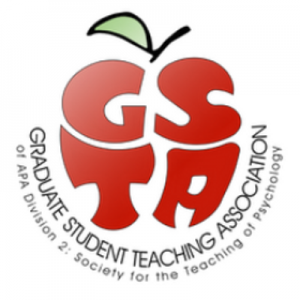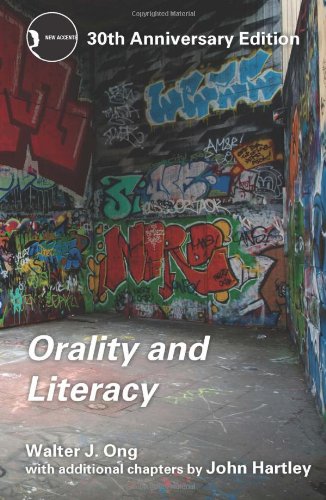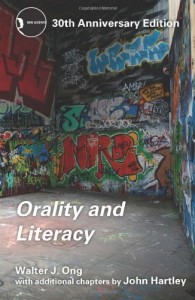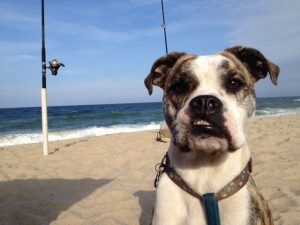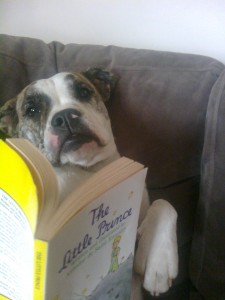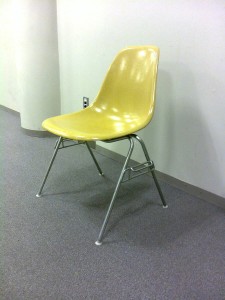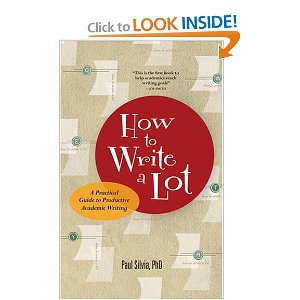In late December I successfully defended my dissertation proposal, titled Writing as Development and the Implications of Blogging. Despite my cautious review of Prezi, I decided to use it for the defense for a few key reasons.
1. Powerpoint is soporific
Powerpoint is soporific – it makes people in the room tired. This isn’t always the case – some people are great with PowerPoint, I’m just not one of them. Prezi designs are sleek, so compared to PowerPoint, it takes a lot less work to make your presentation look good.
2. Reinstated Privacy Function
Second, Prezi has reinstated the private function. When I wrote the previous review, Prezi had temporarily removed the feature that allowed users to create private presentations. This was problematic. For example, consider my my proposal presentation. After presenting I hoped to get feedback from my committee (of three professors) and then make revisions before proceeding with the final paper and subsequent data collection. I wanted to be able to decide after the presentation what was public and private and what would be changed.
Luckily Prezi reinstated the locked or private presentation function. As you might notice I made the presentation private and have kept it that way. My committee gave me critical feedback that changed the research method and some of the final directions. I’d like my presentation to reflect these changes before I make it public. In addition, I have yet to do the research. I know it is unlikely, but what if someone were to see my presentation and be able carry out my design before I do!
3. Familiar Turf
Finally, Prezi needs the latest Flash player to run, so if you are using an unfamiliar computer this could be a problem. However, my defense was at the Graduate Center – where I spend a lot of time so I was able to test out the computer well in advance. Looking ahead this may be an issue.
And how was my proposal defense you might ask?
I’d rather not write too much about that…at least the Prezi worked! Overall, it went well. The basic format was as follows, I talked for about 20 -25 minutes, then each of the three committee members offered some excellent feedback. I later incorporated their comments into a revised copy of my proposal, which I submitted to The Graduate Center. If you’re interested in the content of the proposal you can check out a brief description on my New Media Lab page.
And the future?

I’m slated to present the initial results of my research in late May at the Jean Piaget Society Conference in San Francisco. I will not be able to test out the computers beforehand. If I choose Prezi I must accept the possibility that it may not work. But no matter what presentation software I choose – there’s a risk of technical failure, and based on my experiences Prezi only slightly increases this risk. 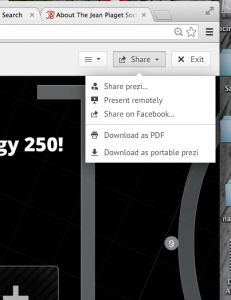 Downloading the Prezi as a PDF is a good backup, it won’t look as good but at least if Prezi does not work I will still be able to scroll through the PDF as I talk. Even if I know there won’t be any tech issues, I’ve found printing out the PDF’s is useful as it helps keep me on track during a talk and I can always check the printout for what’s next before moving what’s projected on the screen. I’ll be sure to post an update on how Prezi worked after the conference!
Downloading the Prezi as a PDF is a good backup, it won’t look as good but at least if Prezi does not work I will still be able to scroll through the PDF as I talk. Even if I know there won’t be any tech issues, I’ve found printing out the PDF’s is useful as it helps keep me on track during a talk and I can always check the printout for what’s next before moving what’s projected on the screen. I’ll be sure to post an update on how Prezi worked after the conference!

